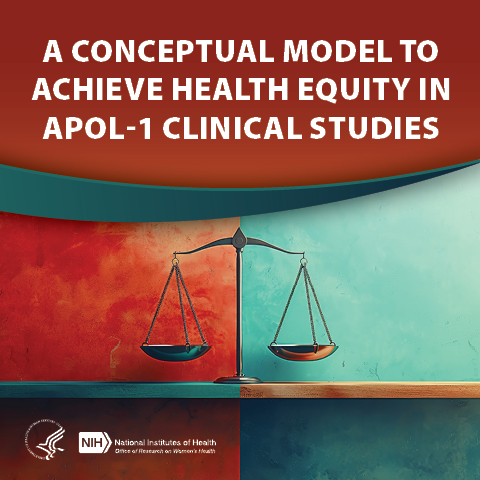
Health equity, particularly with respect to representation in clinical studies, is of critical importance to ORWH’s mission. A new article by ORWH Health Science Policy Analyst Raven Hardy Richard, Ph.D., titled “A Conceptual Model to Achieve Health Equity in APOL-1 Clinical Studies,” leverages a socioecological model (SEM) framework to identify challenges and opportunities related to enhancing clinical study participation diversity for individuals with apolipoprotein L1 (APOL-1)-mediated kidney disease.
Dr. Hardy Richard’s SEM proposes that an individual’s behavior is influenced by an interactive, dynamic network of intrapersonal characteristics, relationships, and structures/systems. The article assesses these factors to identify strategies for improving equity, recruitment, and retention in APOL-1 clinical studies. It is of particular importance that APOL-1 clinical studies are diversified given that kidney disease disproportionately impacts racial and ethnic minorities. Individuals with recent African ancestry, including those in Hispanic/Latino populations, face a higher risk of chronic kidney disease and end-stage kidney disease compared to those from other ancestries, even when considerations are taken for socioeconomic status, lifestyle, and clinical factors.
In sum, issues of health inequity do not exist in silos and are inevitably influenced by an individual’s connection to larger systems, such as their family, caregivers, health care, and community. Dr. Hardy Richard’s article moves us one step closer to addressing these inequities and creating a health care system that prioritizes diversity.
